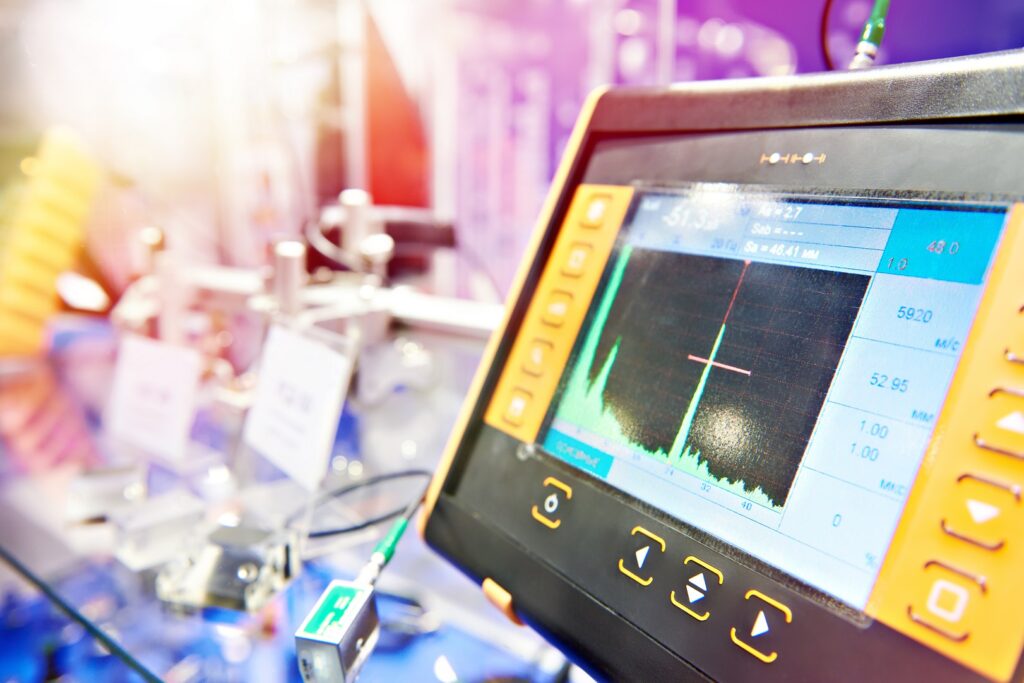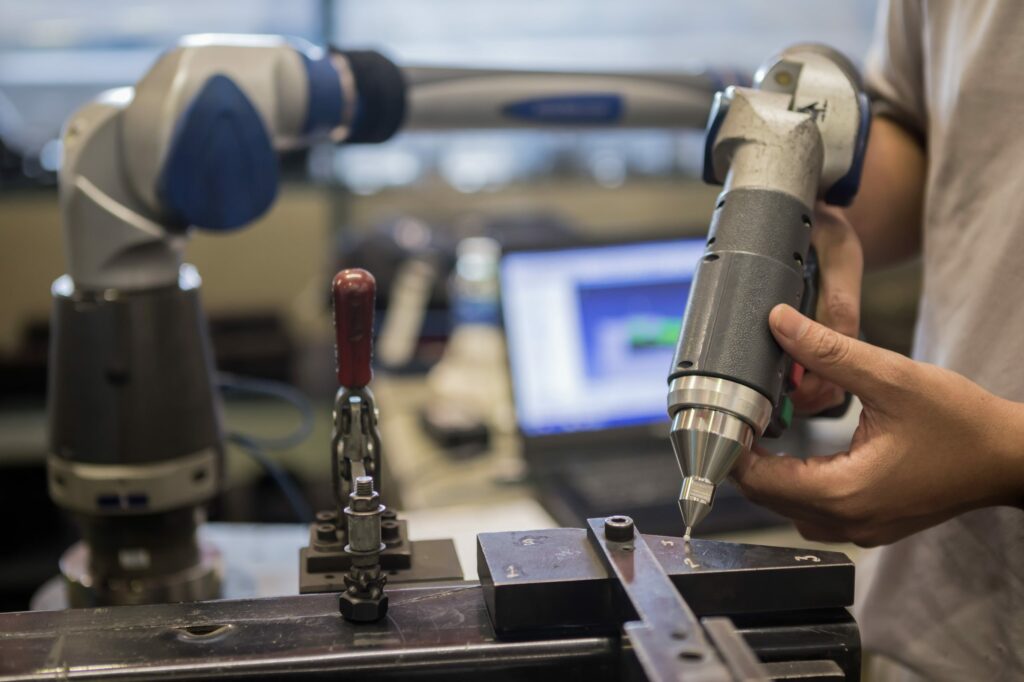Positive Material Identification (PMI) is a non-destructive testing technique used in the oil and gas industry to determine the chemical composition of materials, including metals and alloys. It is a crucial technique to ensure that the correct materials are used in critical applications and verify that they meet the required industry standards and specifications.
Our team of highly experienced certified professionals offers quality industrial positive material identification in Grande Prairie and the Peace Region. We use the latest technology to ensure you get the information you need.
Our certified professional has 15 years of experience in the NDT industry and practises precision and attention to detail on every job. Through ongoing training, our team stays current on all the latest codes and industry requirements, ensuring a high inspection quality standard.
Call us today, and we can ensure that the components in your project meet industry standards and regulatory requirements.


What is Positive Material Identification?
PMI typically uses a handheld X-ray fluorescence (XRF) analyzer or a portable optical emission spectrometer (OES). The analyzer emits radiation, which interacts with the material being analyzed, and the resulting spectrum is used to determine the composition of the material.
In the oil and gas industry, PMI is used to verify the chemical composition of components (usually made of stainless steel), such as pipes, valves, fittings, and flanges, to ensure that they are made from the correct material and meet industry standards and specifications. PMI is also used to identify corrosion-resistant alloys and verify they are correctly installed and maintained.
Overall, PMI is essential to ensure that materials are correctly identified and meet industry standards and specifications. By identifying the chemical composition of materials, PMI helps to prevent accidents, equipment failures, and other costly problems associated with using the wrong materials.
What are the Uses of Positive Material Identification?
Positive Material Identification (PMI) has a variety of uses in different industries, including:
1. Material verification:
PMI is used to verify that the correct material has been used in critical applications, such as pipes, valves, and fittings. This helps ensure the components are made from the right materials and meet industry standards and specifications.
2. Quality control:
PMI is used as a quality control measure to ensure that materials used in manufacturing processes meet the required chemical composition and specifications.
3. Corrosion detection:
PMI is used to identify and verify the presence of corrosion-resistant alloys (CRAs) in components and piping systems. This helps to prevent corrosion-related failures and extend the lifespan of components.
4. Asset management:
PMI manages assets, such as pipes, valves, and fittings, by verifying the materials used and tracking their location and condition over time.
5. Compliance:
PMI ensures that components and piping systems meet regulatory requirements.
Overall, PMI is a crucial non-destructive testing technique used in various industries, including the oil and gas industry, to ensure that materials used in critical applications meet the required specifications and standards. By verifying the chemical composition of materials, PMI helps to prevent accidents, equipment failures, and other costly problems associated with using the wrong materials.
What are the Benefits of Positive Material Identification?
Positive Material Identification (PMI) offers several benefits to the oil and gas industry. Some of the key benefits of PMI include the following:
1. Ensuring safety:
PMI helps to ensure that the correct materials are used in critical applications, which reduces the risk of accidents, equipment failures, and other safety hazards.
2. Preventing material mix-ups:
PMI helps to prevent material mix-ups, which can occur during transportation, storage, or fabrication. PMI ensures that the right material is used in the right place, reducing the risk of costly mistakes and rework.
3. Enhancing quality control:
PMI is an essential quality control tool that ensures that materials used in manufacturing processes meet the required chemical composition and specifications. This helps to prevent defects and other quality issues that can impact the reliability and durability of products.
4. Extending an asset's lifespan:
PMI helps identify and verify the presence of corrosion-resistant alloys (CRAs) in components and piping systems. This helps to prevent corrosion-related failures and extends the lifespan of assets.
5. Improving regulatory compliance:
PMI helps to ensure that components and piping systems meet regulatory requirements. This helps to avoid costly fines, legal issues and project delays associated with non-compliance.
Overall, PMI is a crucial technique used in various industries to ensure that materials used in critical applications meet the required specifications and standards. By verifying the chemical composition of materials, PMI helps to prevent accidents, equipment failures, and other costly problems associated with using the wrong materials. It also improves the quality and durability of products and helps companies meet regulatory compliance requirements.